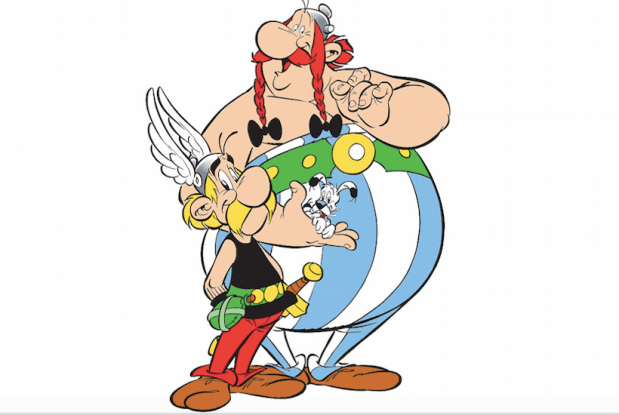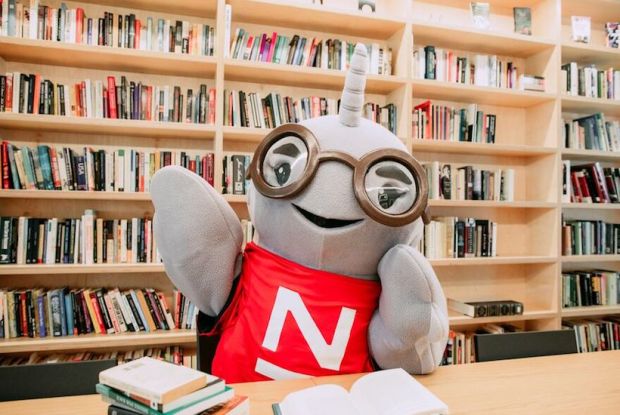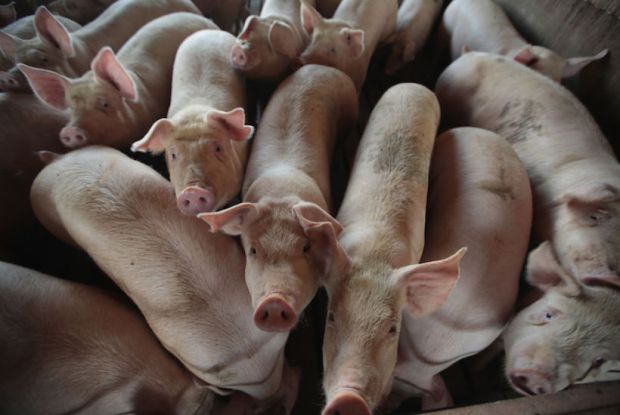The Tokyo 2020 Olympics produced some great woke stories. Simone Biles’ withdrawal from gymnastics competition was labelled ‘courageous’ and ‘brave’ by the very people who tell you that mental health should be considered just like any other aspect of health, while Alana Smith, a ‘non-binary’ skateboarder, whose mission is to ’blur gender lines within the sport’ competed in the women’s event where Smith was heinously ‘misgendered’
This week Wokeworld picked up right where the Olympics left off with some spectacular performances of mental gymnastics and extraordinary feats of sophistry. Just out of the medal placings were a 42-ton rock that was moved from a US university because on one occasion in 1925 it was referred to by a racist slur, ‘capitalist’ versus ‘queer’ trees and a new law that will allow Oregon students to receive a high school diploma without demonstrating proficiency in reading, writing and maths.
We’ve awarded gold, silver and bronze medals to an academic study into white supremacist ‘value systems’ in fishing , a ‘non-binary’ Viking warrior bringing joy to the archaeological world, and the ‘white privilege’ of not bathing kids daily.
Gold
In a game of academic woke-upsmanship it seems that the study into hate speech against animals which we brought to you last week has been surpassed by a new study, Goodbye to “Rough Fish”: Paradigm Shift in the Conservation of Native Fishes.
The report claims that fishing, just like everything else in modern America, is rooted in patriarchal colonial oppression, thanks to the white male founders of the American Fisheries Society. Its key takeaway is that all you white supremacist men should stop using evil, perjorative terms like ‘rough fish’, ‘trash fish’, ‘dirt fish’ and, God forbid, ‘other fish’:
Perjoratives reflect a painful past that many in our field have been [sic] implicitly or explicitly encouraged…
Such terms are not helpful and linked with harmful ideas, outdated science and prejudicial attitudes.
Won’t somebody think of those poor, marginalized fish?
And we can’t forget ‘indigenous ways of knowing’ in this whole sorry saga.
Eurocentric natural resource management tends to focus on the notion that there is only a single knowable truth.
Outside of first principles, this idea, when applied to fisheries, has led to controlling and patriarchal views that emphasise dominance over natural ecosystems and people.
Silver
The duck test – If it looks like a duck, swims like a duck and quacks like a duck, it’s probably a duck – is out of favour in wokeworld where ducks can self-evidently be anything they like. Our latest example was reported this week from a study in the European Journal of Archaeology that claims, through a veritable maze of ‘could haves’, ‘may haves’ and ‘maybes’ that “the remains of an early medieval warrior thought to be female may have been nonbinary.”
The study authors examined an ancient Finnish grave first discovered in 1968 in which a body appeared to have been buried in female clothing and jewellery and with weapons. Clearly made of the intrepid stuff of their Viking forefathers, they did not let the acknowledged paucity of DNA evidence get in the way of a good gender-bending theory. Through ‘modelling’ (modern science’s equivalent to chicken gizzard gazing, if Covid and climate modelling is anything to go by) and a ‘novel approach to estimate the chromosomal sex’ they determined that the individual ‘seems likely’ to have had Klinefelter syndrome, a condition in which males are born with an extra X chromosome.
But a well-known biological condition that usually exhibits no symptoms obviously doesn’t go far enough for gender warrior archaeologists who conclude that (emphasis added):
If the early medieval society divided individuals into men and women based on certain characteristics, the pubertal changes—or the lack of them—could have led the individual being associated with a non-binary gender role.
The Suontaka burial could be seen as evidence of non-binary gender identities being given a prominent value and visibility in early medieval northern European society. The individual could have been a respected member of a community because of their physical and psychological differences from the other members of that community…
Never has the word ‘could’ done quite so much heavy lifting.
Seems like a pretty long crossbow to me.
Bronze
I missed it myself but apparently social media was abuzz last week with debates about how often one should bathe. Inspired by some celebrities’ admissions about their own bathing practices – Jake Gyllenhaal finds bathing ‘less necessary’, Ashton Kutcher and Mila Kunis wash their kids when they can see dirt on them and Kristin Bell and Dax Shepard don’t bathe their kids until they stink – Twitter was awash with arguments from both sides of the dirt divide.
This may sound suspiciously like just another day in the Twittersphere or attention-starved celebrities sharing way too much information (did anybody really need to know that Kucher washes his “armpits and my crotch daily and nothing else ever”?) but it’s way more insidious than that. According to a poignant article in Mic (a website that “captures the unrest, optimism and obsessions of a new generation”) it’s a ‘blatant act of white privilege’.
But you knew that already.
Author Ian Kumamoto regales us with some pearls (too white, probably) of wisdom:
Even if some of us wanted to partake in the no-bathing “movement,” we still live in a world where only white people can get away with this rather lax approach to personal hygiene.
The obsession with getting rid of “impurities” was in full swing when Europeans colonized the rest of the world. Notions of “clean” and “dirty” eventually encompassed genetic and cultural uncleanliness as well, and colonized people were often described as dirty or diseased.
And then demands that:
Future conversations on not showering need to be nuanced and not dismissive of the pain that people of color have endured to be considered “hygienic” .
Or we could all just not air our dirty linen and/or private parts in public. Has anyone thought of that?
Got something to add? Join the discussion and comment below.
Get 10 issues for just $10
Subscribe to The Spectator Australia today for the next 10 magazine issues, plus full online access, for just $10.


























Comments
Don't miss out
Join the conversation with other Spectator Australia readers. Subscribe to leave a comment.
SUBSCRIBEAlready a subscriber? Log in